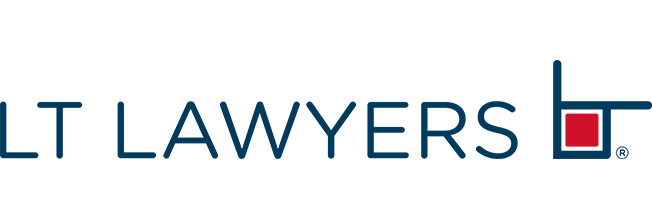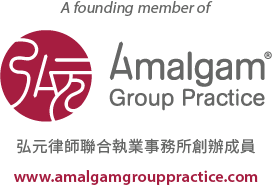Part 1:Comparison of the bankruptcy/winding-up regimes in the PRC and Hong Kong respectively
| Corporate Bankruptcy & Liquidation in the PRC (Creditor’s Application) | Compulsory Winding-up of Hong Kong companies (Creditor’s Petition) |
|---|---|
| Grounds to apply for compulsory bankruptcy: the debtor is unable to repay a due debt
1. According to judicial interpretation currently in force, “unable to repay a due debt” entails that:
2. In support of the application, the creditor should submit evidence to show that the debtor is “unable to repay a due debt”. It should be noted that, in perspective, the facts and grounds underlying the application, namely the circumstances as prescribed by Article 2 of the Enterprise Bankruptcy Law (see “Criteria for acceptance” below), should be set out. As demonstrated below, this in effect raises the bar for a creditor’s bankruptcy application to a new level. |
Grounds for petition: the company is unable to pay its debts (being a liquidated sum then due that equals or exceeds HK$10,000)
1. Bankruptcy of individuals vs Winding-up of companies Unlike the Mainland (where bankruptcy against individuals is not recognized), in Hong Kong, a creditor can petition to the court to bankrupt an individual debtor on grounds and procedure which are similar to that of petitioning to wind up a company. 2. Statutory Demand Under Hong Kong law, if the petitioning creditor has served on the debtor a statutory demand (in prescribed form) requiring him/it to pay a liquidated debt, and the debtor has neither complied with it nor set it aside within 21 days of the service, the debtor is deemed unable to pay the debt whereupon the creditor may petition to the court to bankrupt/wind up the debtor. |
| Criteria for “acceptance” (受理): Before ruling on whether or not to “accept” a bankruptcy application, the PRC court will make a determination on the issues stipulated in Article 2 of the Enterprise Bankruptcy Law, i.e. (i) whether the debtor is unable to repay due debt, and (ii) whether the debtor has insufficient assets to pay off all the debt or is obviously incapable of clearing off its debts.
Under Article 2, two scenarios are recognized, namely where a debtor is “unable to repay due debt and its assets are insufficient to pay off all the debt” and where a debtor is “unable to repay due debt and obviously incapable of clearing off its debts”. It is only with the existence of at least one of these scenarios may the court “accept” a bankruptcy application.
The second level of review goes to the sufficiency of the debtor’s assets to pay off the debt and/or the debtor’s capability to clear off the debt.
Likewise, practicing lawyers tend to apply for bankruptcy only after obtaining valid judgment/ arbitral award, so as to ensure that the court will “accept” the bankruptcy application. Generally speaking, in the PRC, it is commonly agreed that the “acceptance” of a bankruptcy application by the court is difficult to achieve both in theory and practice. “Acceptance” by the court requires overcoming 2 hurdles of review both in substance and form. Furthermore, there is no unified criteria on “acceptance” for the great many courts in the PRC, and the review time is lengthy, not to mention the courts also take into account the effect of bankruptcy cases on society. All these factors render it difficult to obtain “acceptance” of bankruptcy application by PRC courts, which deters creditors from making use of the bankruptcy procedure to enforce their rights. |
The notion of “acceptance” (受理) under the PRC law does not apply to Hong Kong. The Hong Kong court will not conduct any substantive review of a creditor’s petition when it is presented. Whether or not the grounds for winding-up have been established will be dealt with later by the court at the substantive hearing of the petition.
If the debtor has not disputed the debt or has no honest (bona fide) defence of substance to it, the creditor may go straight to the court with a petition to bankrupt/wind up the debtor without having to engage in any laborious or prolonged legal process for obtaining a monetary judgment/arbitral award in the first instance. This is so regardless of whether there is any arbitration agreement with the debtor, or even any ongoing arbitration proceedings in Hong Kong or elsewhere (see the “LeTV” case below). As demonstrated in the opposite column and those above, by comparison, the legal procedure for insolvency proceedings in Hong Kong is less onerous than its Mainland counterpart. According to the Hong Kong Official Receiver’s Office, there were 3,256 bankruptcy/winding-up cases between January and May 2018, and the courts heard on average 42 cases per week.
|
Part 2:Outline of Recent Hong Kong Winding-up Cases
| Case | Lasmos Ltd (“Lasmos”) v. Southwest Pacific Bauxite (HK) Ltd (“Southwest”) (HCCW 277/2017) | Re Hong Kong Sports Industrial Development Ltd (Formerly known as “LeTV Sports Culture Develop (Hong Kong) Co Ltd”) (“LeTV”) (HCCW 66/2018) |
|---|---|---|
| Date of Decision | 2 March 2018 | 4 June 2018 |
| Key facts |
|
|
| The Court’s Decision | Lasmos’ winding-up petition was dismissed | A winding-up order against LeTV was granted |
| Reasons for decision |
The Hon. Mr Justice Jonathan Harris of the Court of First Instance (“Harris J”) considered that in circumstances where (1) Southwest disputed the debt (i.e. no agreement had been reached as to the calculation and repayment of the debt); (2) the agreement under which the debt is alleged to arise contains an arbitration clause; and (3) Southwest required the dispute to be resolved in accordance with the said arbitration, the winding-up petition should be dismissed. |
Harris J considered that LeTV failed to adduce any evidence to demonstrate a bona fide defence on substantial grounds (i.e. an honest, genuine defence of substance) to the petitioners’ claim for the said debt of around US$13 million, and saw no justification for requiring the parallel arbitration be completed before winding-up LeTV. |
| Author’s Observations |
|
|
Authors
Corporate Bankruptcy & Liquidation in the PRC: Yan Penghe Harvey, Managing Partner of ZHONGYIN LAW FIRM;
Compulsory Winding-up of Hong Kong companies and Outline of Recent Hong Kong Winding-up Cases: KM Liew, Principal of LT LAWYERS
18 July 2018
Disclaimer
The above contents by no means constitute any legal advice or recommendation by LT Lawyers. Please contact KM Liew at LT Lawyers if you have any inquiries about this article. You should seek professional advice before taking any action in relation to the matters dealt with in this article.
Copyright
If reprint of the above contents or any part thereof is desired, please specify at the forefront of any and all such reprint the source of such contents, namely “LT LAWYERS”.

KM Liew
Hong Kong LT Lawyers, Principal
Practice Foci: International Dispute Resolution, Audit & Financial Reporting Investigation, Financial Regulatory & Compliance

Harvey Yan
Beijing Zhong Yin Law Firm, Managing Partner
Practice Foci: Investment and M&A, Securities and capital markets, Company comprehensive business

